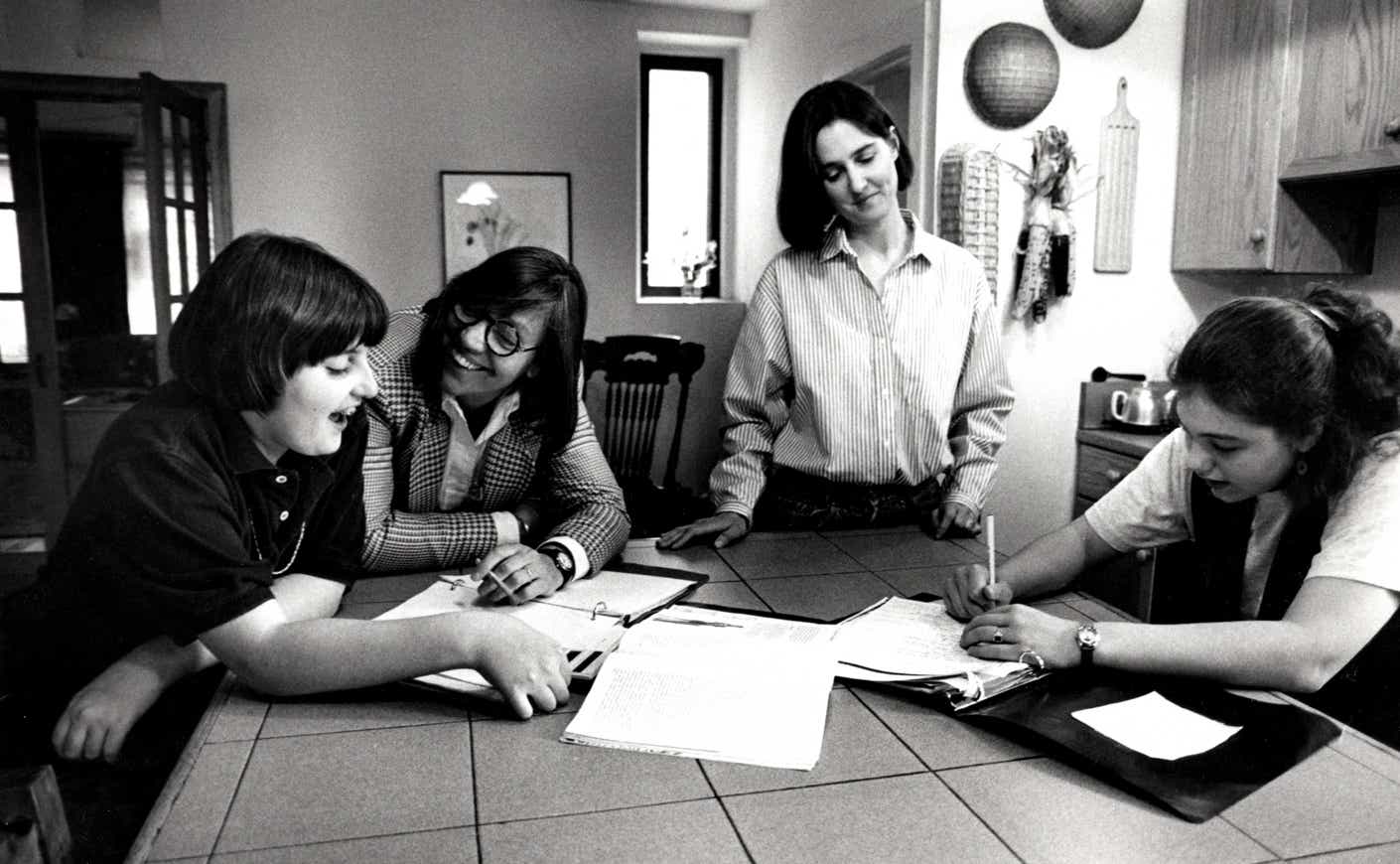Ry Russo-Young was just a child when she became the center of a landmark legal case. Her two mothers, who were raising her and her sister, were being sued by a sperm donor for paternity rights. The legal battle that followed rocked their family, which belonged to an early wave of openly gay and lesbian couples raising children in the 1980s.
Russo-Young, 39, became a filmmaker, directing teen dramas like The Sun Is Also a Star and Before I Fall. But she knew that she had her own remarkable story to tell — and now 30 years later, she’s finally sharing it in a new three-part documentary for HBO.
We spoke to Russo-Young and her moms Sandy Russo and Robin Young about Nuclear Family, and what it was like to put together this intensely personal story.
Katie Couric Media: Ry, you say you’ve been trying to tell this story for the majority of your life. Why was right now the time to share it?
Ry Russo-Young: It was really only after having my first son that I started to understand the story, and when I was pregnant with my second, I felt compelled to actually make the series. It wasn’t until I had the responsibility of being a parent, each hour of every single day, being in control of a child’s safety that I realized the stakes of the story and felt them on a visceral level. The thought of being unable to control what happens to your child and having he/she taken away in a court of law is just terrifying.
You have so much incredible archival footage and photos. What was it like for the three of you to sift through it all?
The expression “it takes a village” comes to mind here. My moms were going down to the basement all the time, to hunt for another box of depositions or a roll of Super 8 film. My two amazing editors, Ben Gold and Pisie Hochheim, combed through every single tape, hard drive, archival news show, and journal. Then my cousin Vanessa heard I was working on this project and asked her mother to send me all of our Great Uncle Sy’s home movies — it turns out he was a gifted cinematographer. Jacob Estes was texting me photographs and asking friends of his dads to talk to me. Cameron Davidson would come to my house in a mask and pick up sanitized photo albums to scan every other week, for months. So many people came together to make sure we had as much as could be found. We also made the series during the pandemic, so on a logistical level, it was quite challenging.
This was such a landmark decision, and Ry, you were only 11 years old when it all happened! At what point did you really understand the gravity of the case?
I don’t think I truly understood it all until after I made this series. Making Nuclear Family was really an attempt to further understand everyone’s perspective, but also to understand the case both psychologically and historically. I’m proud that the series balances both the importance of the case from a legal perspective and what it did to us all emotionally as well.
Ry, what’s next for you?
I know you’d think that I’d be done with this story having already shared so much, but there’s much more here I want to explore. I’m interested in doing a fictional series loosely based on the docuseries. I want to go further into the hearts and minds of Tom and Milton, Cris, and my moms. In a sense, the tentacles of this feel limitless to me.
Sandy, when you were going through the trial, could you have ever imagined a series like this would be so widely accepted?
Sandy Russo: No, not in my wildest dreams would I have thought that our lesbian family would go from lacking societal and legal recognition and legitimacy 30 years ago to becoming ordinary and accepted today. Over the last 40 years, the world has come so very far in recognizing and celebrating LGBTQ families. There’s still a long way to go and I hope Ry’s compassionate docuseries helps move our society to the next level of LGBTQ recognition and respect.
Robin, we see Ry’s understanding of Tom evolve throughout the series. Did filming this change your perception of him and his intentions?
Robin Young: Actually no, my perceptions of Tom Steel have not changed. The accuracy of my understanding of his motives for his four-year misogynist and homophobic attack on our family are, if anything further confirmed by my conversations with Ry and the statements made by him, his friends, and his attorney. I’m unable to forgive him for the pain he caused my children when they were so young. I do, however, understand Ry’s journey and deeply respect her ability to now hold a variety of emotions about him at once, to transcend her pain to be able to reach a place where she is once again able to feel the love she felt for him as a young child. I understand that her relationship to him is different than mine and that makes sense to me.
How did you feel about Ry reaching out to people from your past for the project?
It made us incredibly uncomfortable but we understood that doing so was part of Ry’s journey.
Have any gay couples reached out to you since the series premiere to thank you for what you’ve done?
Yes, lesbians, gay men as well as heterosexuals have reached out to thank us, to share their stories, and to express their profound admiration for the universality of Ry’s work. It seems that her docuseries stirred the emotions of parents and children from a myriad of family constellations.













